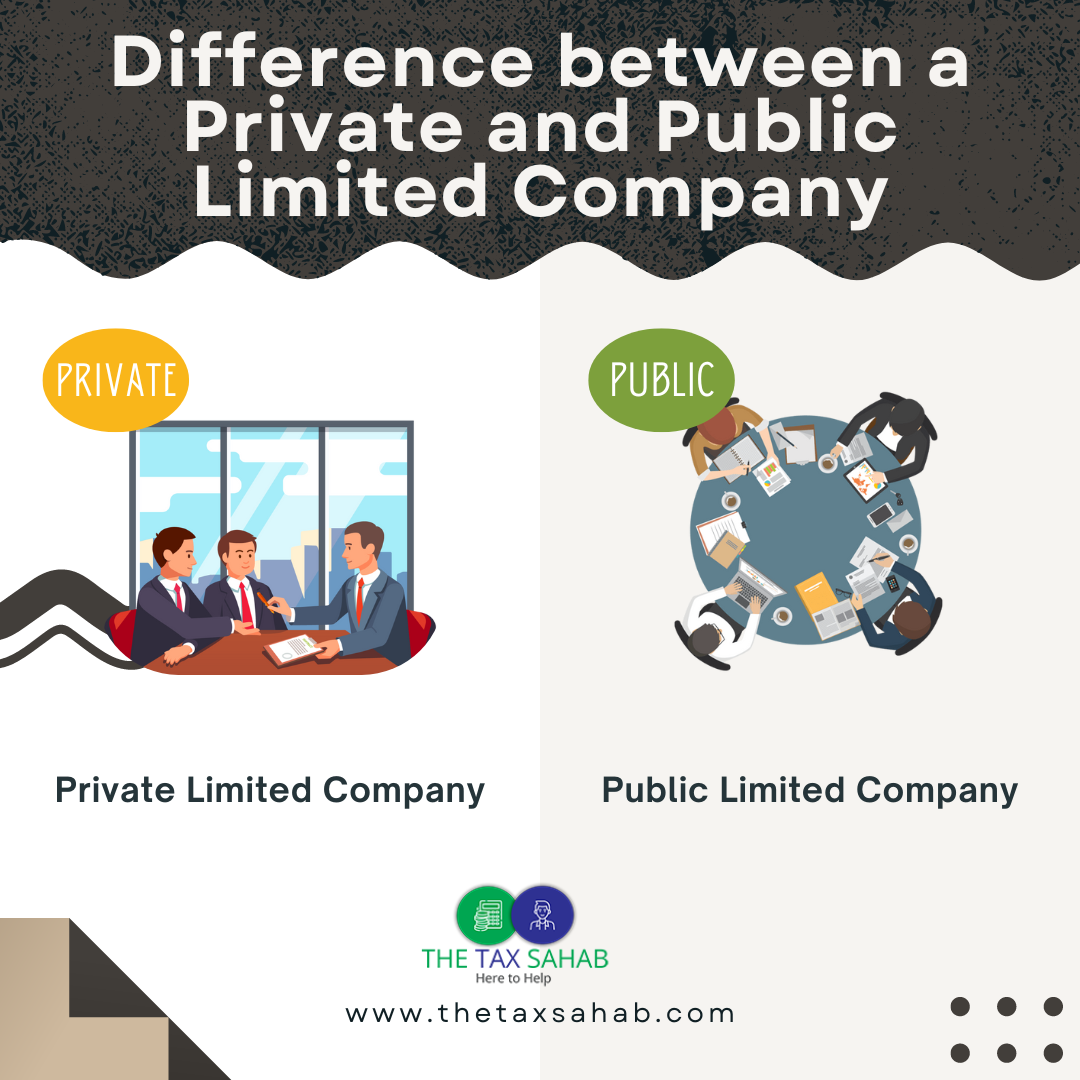Introduction:
There are many different names that can be used to describe a company; we will understand the difference between each of these companies ending with a different suffix. We will be looking at the difference between private and public limited company here in this article.
What is meant by a company?
As the name implies, a company is an organization of individuals that has been formed to achieve a specific objective. As such, it is a separate legal entity that is regarded by the law as two separate individuals. It has become so popular for a variety of reasons; these include perpetual succession, a common seal, a right to claim damages, and a capital distribution system that distributes capital in the form of transferable shares. We will also discuss the difference between private vs public limited company.
What is a Private Limited Company?
The term “private limited company” is commonly used to refer to a joint stock company. Private limited companies are generally governed by the Indian Companies Act, 2013 According to the Act; the minimum paid-up capital of a private limited company must be one lakh rupees in order to be recognized as a business entity. Even though the maximum number of members is 200, this number is not inclusive of current or former employees who have been members during the course of their employment. A transfer of shares is restricted. The purchase of shares and debentures by the public is prohibited. It is called a private limited company.
What is a Public Limited Company?
Generally, public limited companies are joint stock companies that are governed by the Indian Companies Act, of 2013 they have no limit on how many members they can have, but they must be formed by an association of voluntarily involved persons who have at least five lakh rupees in paid-up capital. A share can be transferred without restriction; Shareholders of the company can be invited to subscribe for shares and debentures through the company. At the time of incorporation, the term public limited will be added to the company’s name.

The difference between a private and a public limited company are
- The difference between private limited company and public limited company is that the shares of a public company are traded on a public market, whereas in private limited companies, the shares are not listed on stock exchanges or traded on stock markets at all.
- For public companies, a minimum of seven people is required. For private limited, two people are required.
- In the case of a private company, there is no such requirement in terms of the meeting of shareholders. There is a legal requirement for public limited companies to call a meeting of their shareholders every year.
- Generally, public companies are required to issue prospectuses or prospectus statements. In the case of private companies, prospectuses, and statements are not required to be issued.
- There are some differences between a private limited company vs public limited company in the sense that public companies need a certificate in order to start operating, whereas private limited companies can start doing business immediately after they have registered.
- Unlike a public company, where the shareholders have the freedom to transfer their shares at any time, the transfer of shares is limited in a private company.
- The scope of a private company is limited, whereas that of a large public one is huge. This is because private companies are limited to the number of shareholders, while public ones can raise funds from a large number of investors.
- It is generally the case that public limited companies have a greater regulatory burden. This is due to the fact that a large amount of information has to be made available to shareholders and prospective shareholders, who are expected to have more information about them. As a result of the regulations provided by SEBI, there is a lot of money that needs to be invested to make sure that reports and disclosures are in compliance.
- A formal document is received from holding meetings of private limited companies.
- Private companies, therefore, are not obliged to appoint a company secretary, whereas public companies are required to do so by law, but private companies are free to do so at their own discretion.
In order to register a company, one needs to decide on the type of company that is most appropriate for one’s needs. However, the most important factor in choosing a public company is being able to sell shares to the general public. As both of them private limited vs public limited companies have different advantages and disadvantages.

Here is a list of features that differentiate a public company from a private limited company
| Features | Public Limited Company | Private Limited Company |
| Minimum number of members required | 7 | 2 |
| Minimum number of directors required | 3 | 2 |
| Maximum number of members | Unlimited | 200 |
| Minimum capital required | 5,00,000 | 1,00,000 |
| Invitation to public | Yes | No |
| Issue of prospectus | Yes | No |
| Quorum at AGM | 5 members | 2 members |
| Certificate for commencement of business | Yes | No |
| Term used at the end of company name | Limited | Private limited |
| Managerial remuneration | No restriction | Cannot exceed more than 11% of net profits |
| Statutory meeting (mandatory) | Yes | No |
When a private limited company is converted into a public limited company, the process will be easier and will give the company more control in the event that it becomes a public company in the future. The company would no longer need to hold a shareholder meeting and pass a special resolution regarding part-related transactions if it decided to convert to public company status.
As a result of the enactment of the 2013 Companies Act, there has been a rapid increase in the number of companies that have decided to make the transition to becoming private entities.

Conclusion:
Thus, it is clear from the above-discussed points that there are some key differences between the registration processes of private vs. public limited company. One should be aware of these differences so that he/she can ensure a smooth registration process for his/her company.
In order to register a private company, or to incorporate a public company, The Tax Sahab offers you all the information that you need. The experts at The Tax Sahab are always available in order to assist you as they are providing services that are very reasonable, as well as reliable.





